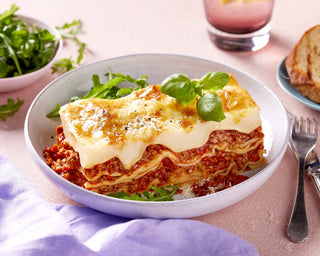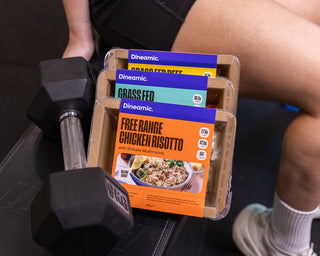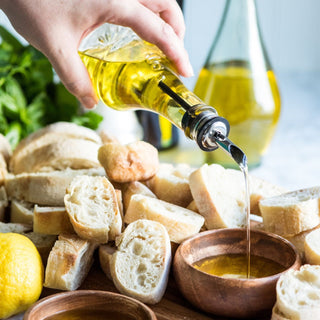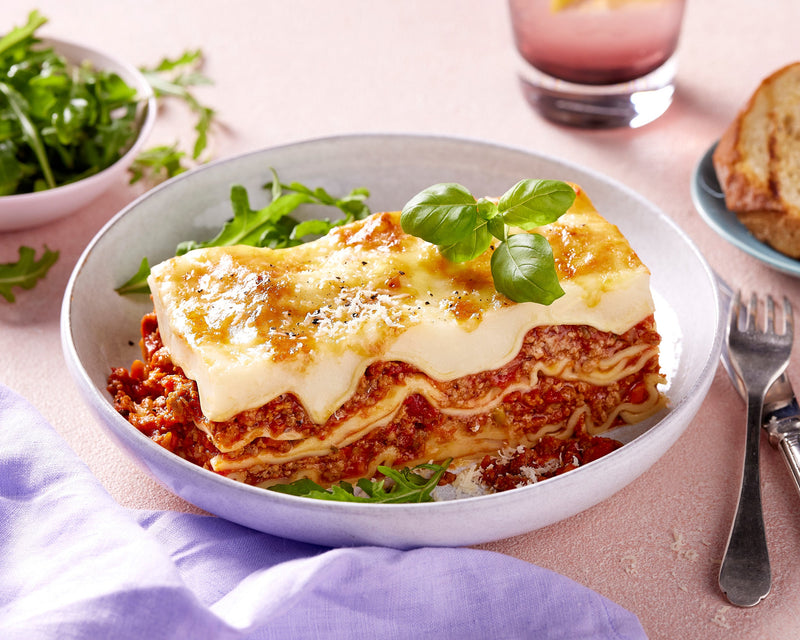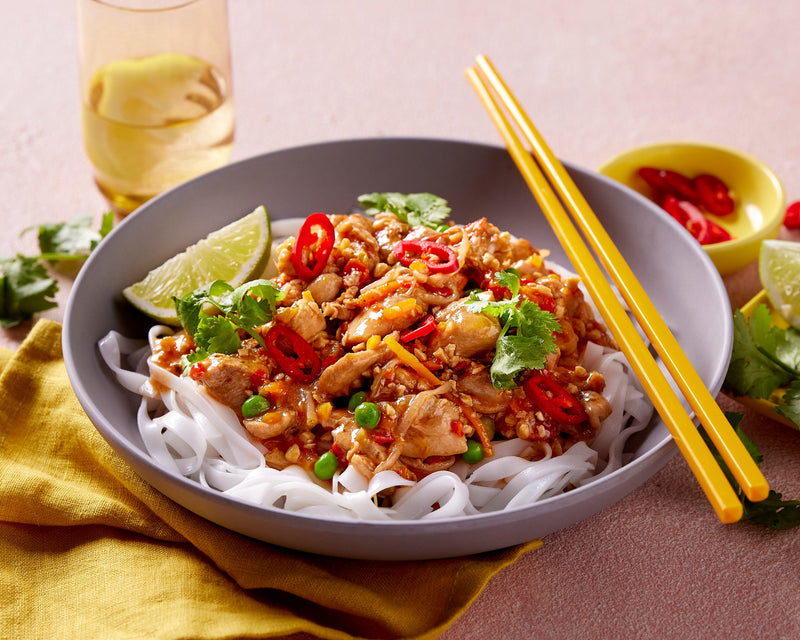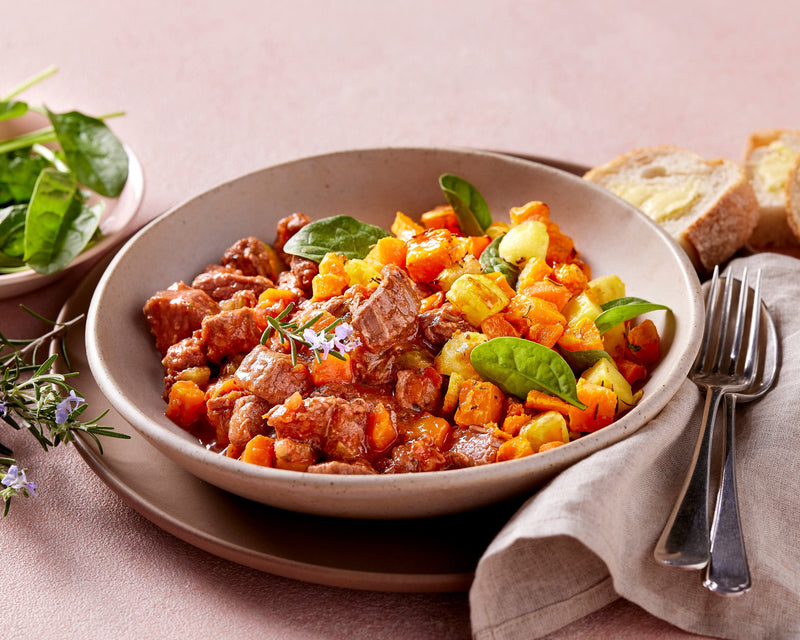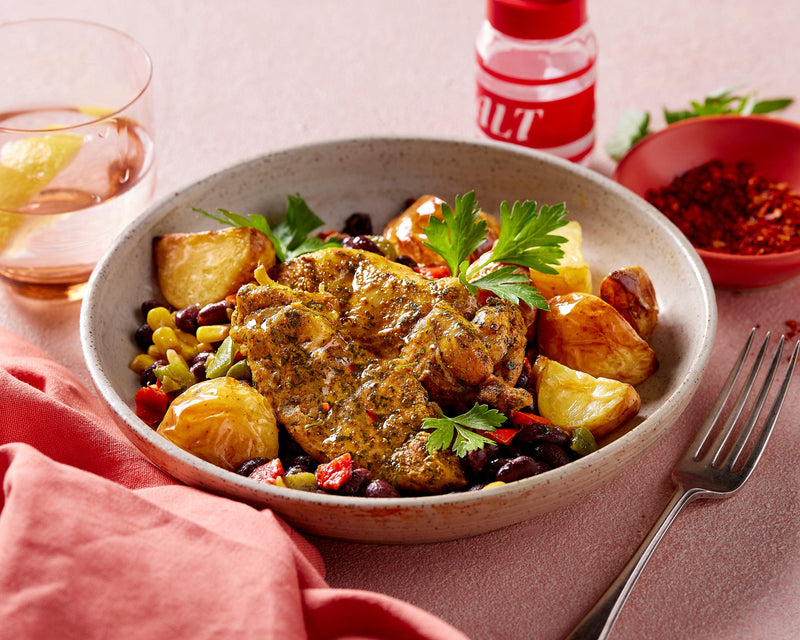Extra Virgin Olive Oil (EVOO), known as liquid gold, is recognised as one of the healthiest and most popular edible oils. It has a unique chemical composition that provides a myriad of health benefits from heart health, mental health, brain function, gut health and diabetes and weight management.
Nearly two thirds (65%) of Australians use EVOO in raw food preparation or savoury cooking, consuming approximately one tablespoon (20ml) per day. This is lower than the recommended amount of two to three tablespoons (50ml) per day required to gain many of the health benefits associated with EVOO.
I recently attended a presentation on why we should all be trying to include more EVOO in our diets. According to the Olive Wellness Institute’s Extra Virgin Olive Oil Health and Nutrition Report, EVOO is the highest quality olive oil available. Why?
- It’s extracted from the olive fruit by manually crushing and pressing olives, without the use of high heat or chemicals. As a result, it retains a high amount of the protective plant phytochemicals.
- These provide several functional properties including a longer shelf life, thanks to their high oxidative stability function.
- EVOO is unique due to its fatty acid profile, as well as the many natural bioactive compounds, like phenols – shown to assist with glucose metabolism and improve the sensitivity and effectiveness of insulin.
- Biophenols found in EVOO have antimicrobial, powerful antioxidant and anti-inflammatory properties. These antioxidants help protect the body against free radical damage that contributes to disease and ageing.
- There’s also phytosterols, tocopherols (vitamin E) and carotenoids.
- EVOO may help reduce the risk of heart disease. Compounds such as oleuropein derivatives, oleocanthal and hydroxytyrosol contribute to heart health.
The PREDIMED study found that for each 10g/day increase in EVOO consumption (approximately 1/2 tablespoon), cardiovascular disease risk decreased by 10% and mortality risk by 7%. - The fresher the EVOO, the higher the phenol content. Look for the harvest date on the bottle to make sure you are getting new season EVOO. Harvest typically takes place between April and June in the Southern Hemisphere, and between October and December in the Northern Hemisphere.
Health benefits of cooking with EVOO.
- Cooking with EVOO increases the bioavailability of fat-soluble bioactive compounds. It is a highly heat stable oil, less prone to oxidation compared to other cooking oils because EVOO is naturally produced, has not undergone any refining, contains high levels of stable monounsaturated fat (and low levels of unstable polyunsaturated fat), and high levels of natural antioxidants, which help stop these fats from breaking down.
- It is suitable for all home cooking, including high temperature cooking like sautéing, frying and baking. It is an excellent replacement for less healthy fats and can be splashed on a salad, drizzled on roasted vegetables and used in many savoury and sweet dishes.
- Like many other minimally processed foods, EVOO may be slightly more expensive. But a detailed analysis on 20 participants involved in a 2017 randomised controlled trial in Australia found that following a Mediterranean diet, with EVOO as the principal fat, was more affordable compared with the participants’ baseline diet, and reduced total grocery spend by approximately $26 per week.
What about other cooking oils?
- The production of extra virgin olive oil (EVOO) is different from most other edible oils which are made from seeds. Many vegetable oils need to be heated and the oil from seeds extracted with solvents and/or high pressure. This means most of the antioxidants in seeds are lost during production.
- EVOO contains up to 120 times more health-promoting biophenols compared to canola oil. Canola oil is generally considered a ‘healthy’ oil because it is very low in saturated fat (7%), and like olive oil it is high in monounsaturated fat (55%), but it also contains 26% polyunsaturated fat. Canola oil production generally involves heating, pressing, chemical extraction, and refining.
- Coconut oil is stable for cooking at high temperatures, however it contains only trace amounts of antioxidants and is predominantly saturated fat, while EVOO is rich in antioxidants such astocopherols and hydroxytyrosol.
- Sunflower oil is low in saturated fat and high in polyunsaturated fats, specifically omega 6 fatty acids such as linoleic acid, which can help to reduce cholesterol levels. However, sunflower oil is refined and as a result has fewer bioactive compounds than EVOO.
Does Dineamic use EVOO?
Yes, we only use Extra Virgin Olive Oil in our cooking. All our meals are based on the Australian Dietary Guidelines (ADG) as well as the Mediterranean-style diet of which EVOO holds an important place.
Article written by Karen Inge, and first published on www.kareninge.com.au
For more information including some delicious recipes and meal ideas check out www.olivewellnessinstitute.org


